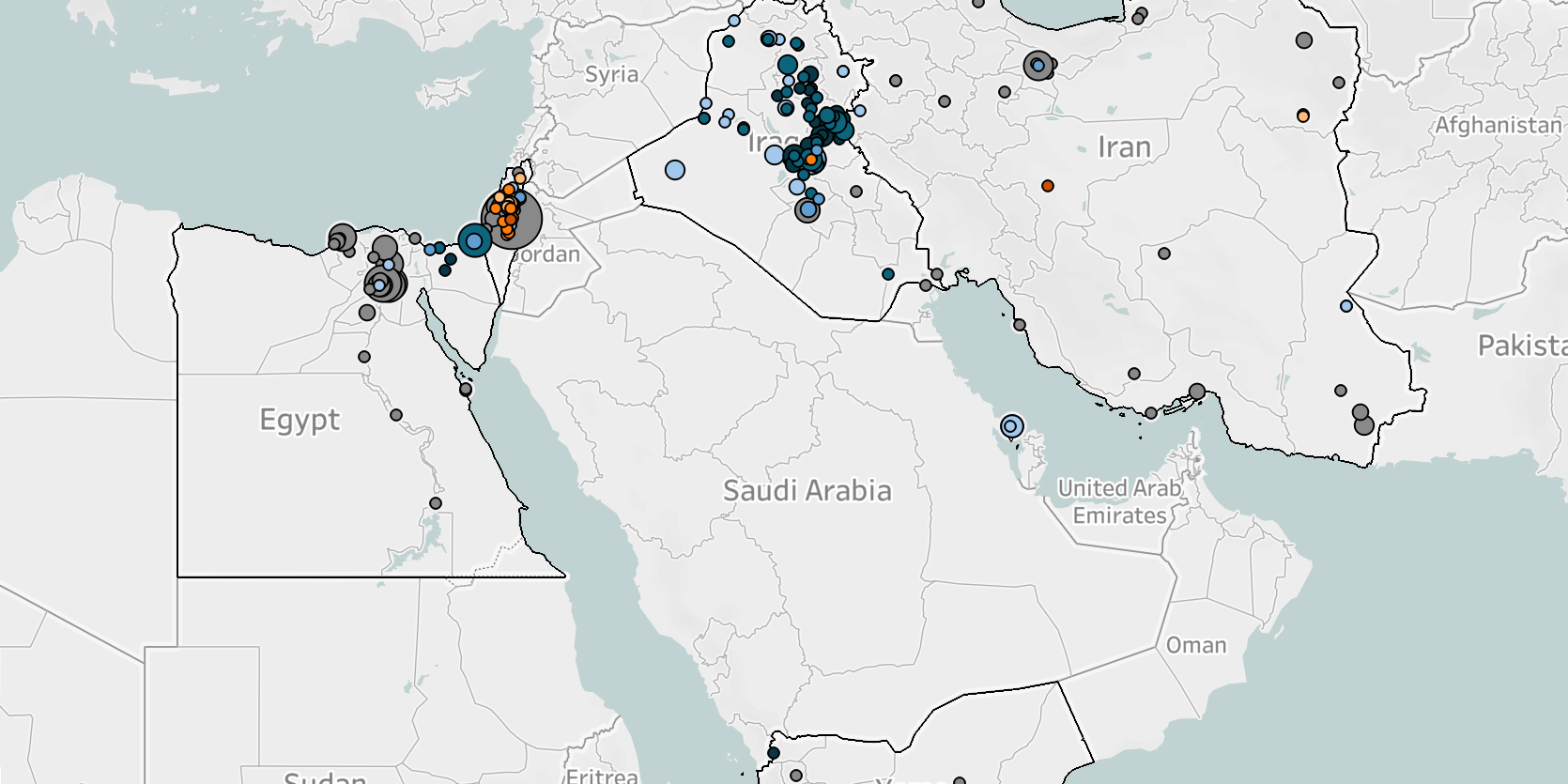Last week in Yemen, pro-Houthi authorities announced several restrictive measures targeting personal freedoms. In Bahrain, a group of young anti-LGBT activists put up banners denouncing homosexuality. Celebrations of LGBT Pride Month were condemned by a small right-wing Jewish group in Israel. Police clashed with both Jewish Haredi and Muslim worshippers in the West Bank, after preventing them from holding prayers. In Iran, for the first time since the Iranian new year, no incidents of Baha’i persecution were reported. However, a Sufi Gonabadi dervish prisoner was expelled from university while in prison.
In Yemen, pro-Houthi authorities released a new directive last week detailing new instructions regarding music and artists. The new directive was issued by the Houthi governor of Sana’a to the heads of directorates and local councils. It calls for the “curtailing of the phenomenon of artists and artists performing at events and weddings by promoting Quranic awareness within the community” (Al Mashhad Al Yemeni, 22 June 2021). The new directive builds on instances over the last few weeks where pro-Houthi authorities have harassed citizens at weddings, banning music and bands from performing. Another directive soon followed, expanding the ban and calling on citizens across Houthi-controlled territory not to deal with artists (Al Asimah Online, 23 June 2021). Pro-Houthi authorities are thought to have made these directives following a Friday sermon given by their leader Abdelmalik Al-Houthi during Ramadan (Al Mashhad Al Yemeni, 22 June 2021). Sources have also pointed to the Houthi’s eagerness to replace songs at weddings with “sectarian lectures” aimed at recruiting more people to join them (Al Araby, 28 June 2021). In response, the pro-Hadi government announced that 1 July will be celebrated annually as “Yemen’s Song Day” (The Arab Weekly, 29 June 2021).
Additionally, pro-Houthi authorities also issued official circulars in some Houthi-controlled territories last week allowing “temporary marriages,” otherwise known as ”zawaj al-mut’ah.” Zawaj al mut’ah (temporary or pleasure marriages) are private and verbal temporary marriage contracts. This type of marriage is primarily practiced in Twelver Shiite Islam, while traditional Sunni Islamic thought largely forbids it (BBC, 13 May 2013). Pro-Houthi forces claim that it is meant to facilitate marriage for all young people (Al Mashhad Al Yemeni, 19 June 2021). Finally, in continuation of their campaign to close Sunni Quran memorization centers and mosques, pro-Houthi forces shut down at least three centers in Sana’a city last week, allegedly for refusing to teach a Houthi-approved curriculum (Al Asimah, 23 June 2021).
Meanwhile, celebrations of LGBT Pride Month led to some backlash in both Bahrain and Israel last week. In Bahrain, the symbolic celebration of LGBT Pride Month by the United States diplomatic mission, which raised the rainbow flag at the embassy in Manama, led to widespread condemnation from clerics and parliamentary members. Youth groups also launched an anti-LGBT campaign last week, hanging banners in the streets of Al Muharraq and Sitrah cities that said “homosexuality is rejected by all religions” and that society rejects “abnormal behavior” (Twitter, 24 June 2021). Meanwhile, in Israel, members of the Hazon movement — a movement dedicated to “returning the Jewish character to the national agenda in Israel” — protested against a pride parade that took place in Tel Aviv last week (JPost, 24 February 2019; 26 June 2021).
In the West Bank, Jewish Haredi worshippers clashed with Israeli police forces at the tomb of Chaim Ibn Attar while visiting the tomb for the Yahrtzeit (anniversary of his passing) celebrations. Chaim Ibn Attar was a Jewish holy leader and people visit his grave on the Yahrzeit to pray for salvation. Clashes erupted between worshippers and police due to restrictions on the number of people allowed to visit the tomb and the time they were allowed to stay inside (Haderi Ha Haredeem, 25 June 2021). Meanwhile, in Nablus, Muslim worshippers were prevented from performing Friday prayers in the Jabal Sabih area. These prayers are a form of protest against the possible construction of an Israeli settlement on the land. Clashes between Muslim worshippers and Israeli forces ensued, leaving at least 400 demonstrators and two paramedics injured (Al Jazeera, 25 June 2021).
In Iran, for the first time since the start of the Iranian new year, no events of religious repression against Baha’is were reported. However, a Sufi Gonabadi dervish prisoner was expelled from the University of Tehran for not attending university due to his imprisonment. This discriminatory decision took place despite contradicting the disciplinary regulations of universities in Iran, which stipulate that “in the event of temporary detention or imprisonment…the student may continue his/her studies after the end of the detention or imprisonment” (HRANA, 25 June 2021). This decision represents the continuation of a trend by Iranian authorities targeting religious minorities for expulsion from universities (HRANA, 25 June 2021).
All ACLED-Religion pilot data are available for download through the ACLED-Religion export tool. Explore the latest data with the interactive ACLED-Religion dashboard.






